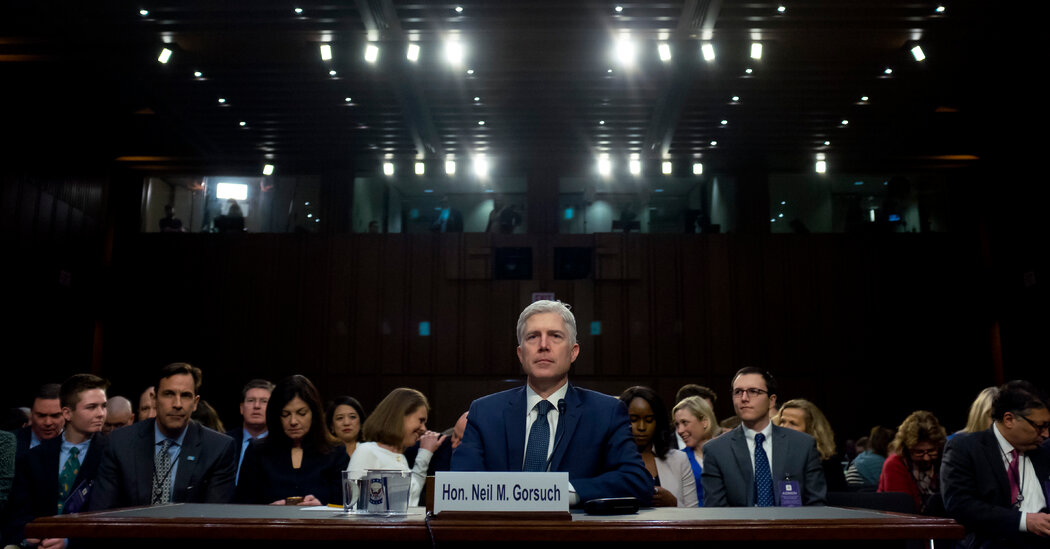With three Republicans supporting her, Judge Ketanji Brown Jackson’s confirmation parallels that of Justice Neil M. Gorsuch in terms of bipartisan sup
With three Republicans supporting her, Judge Ketanji Brown Jackson’s confirmation parallels that of Justice Neil M. Gorsuch in terms of bipartisan support.
Justice Gorsuch, quickly nominated in 2017 by President Donald J. Trump, was a conservative judge on the 10th Circuit Court of Appeals, in Denver, where he had sat for more than a decade and had written scores of opinions. A former lawyer in the Justice Department during the George W. Bush administration, he had the distinguished background and high-level clerkships typical of Supreme Court nominees who draw wide backing.
But Justice Gorsuch was filling the vacancy created by the death of Justice Antonin Scalia, the conservative icon who died in February 2016 at a Texas hunting lodge during a weekend trip. Senator Mitch McConnell of Kentucky, then the majority leader, refused to let President Barack Obama fill the vacancy with Judge Merrick B. Garland. The extreme tactic left the seat open for the better part of a year, allowing Mr. Trump to fill it a few weeks after he took office in January 2017.
The sequence of events infuriated Democrats; they were in no mood to support any Trump nominee, no matter how qualified he might be. Justice Gorsuch sought to overcome the resistance, but he could not.
Democrats tried a filibuster of Judge Gorsuch and were successful in denying him the 60 votes needed to advance. But Mr. McConnell led Senate Republicans in changing the rules governing the filibuster to allow debate on Supreme Court justices to be cut off with a simple majority. Democrats had already lowered the threshold for lower court judges in 2013, when Mr. McConnell was leading a Republican blockade against them.
The change cleared the way for Justice Gorsuch and has been a significant factor in making Supreme Court fights more partisan by allowing nominees to be confirmed on a majority vote.
In the end, only three Democrats from conservative states — Senators Joe Manchin III of West Virginia, Heidi Heitkamp of North Dakota and Joe Donnelly of Indiana — joined Republicans in backing Justice Gorsuch, in a 54-45 vote. Senator Michael Bennet of Colorado, a Democrat from Justice Gorsuch’s home state, voted against the filibuster but opposed the nomination.
When the next vacancy occurred in 2018, Mr. Trump reached out to the three Democrats to consult on the nomination before he put forward Judge Brett M. Kavanaugh. In the end, Mr. Manchin was the only Democrat to support Justice Kavanaugh after he was accused of sexual assault.
Ms. Heitkamp and Mr. Donnelly both lost their seats in the 2018 midterm elections, and their votes against Justice Kavanaugh — as well as the Republican backlash to his explosive confirmation hearings — were considered factors in the defeats.
Of the three Republicans backing Judge Jackson, only Senator Lisa Murkowski of Alaska is up for re-election this year. Senator Susan Collins of Maine was re-elected in 2020, and Senator Mitt Romney’s term will be up in 2024.
www.nytimes.com
